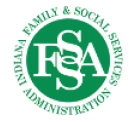
AI's Role in Transforming Documents into Actionable Insights



Santhosh G, Karrthik Shettyy and Anshika Bharti
May 25, 2023
Document Management begs an Upgrade
In the digital era, managing documents in whatever format they are received is crucial for businesses, organizations, and government agencies. With an enormous amount of paper-based and digital documents like contracts and invoices generated daily, efficient document management has become more challenging than ever. Among the most pervasive challenges is the multitude of formats used to convey information, and the implied need to efficiently analyze, understand, correlate, and act on these formats.
The burden of managing these documents manually can be overwhelming, time-consuming, and prone to errors. Fortunately, advancements in technology and AI have given rise to intelligent document management systems that automate processes for efficient, accurate, and secure data management. These systems also enable complex workflows to be automated, dramatically increasing the productivity of knowledge workers, improving the quality and consistency of processing outcomes, and supporting the need for audit and review. Of equal importance, these modern capabilities are available for rapid deployment in a modular fashion, working alongside broader and more holistic digital transformation programs that may require much longer time horizons to fully implement.
Barriers to Change
Considering the evident advantages, numerous forward-thinking organizations are embracing these solutions to tackle various inherent obstacles. Among them, digitizing paper-based documents can be a time-consuming and costly endeavor, while consolidating and managing data that is spread across multiple systems and formats can be complex.
Often operating as a “black-box”, commercial AI-enabled systems make automated decisions, sometimes without any human intervention, which can pose challenges related to transparency, decision-making, accuracy, and fairness, especially in the government sector. Then, there are concerns about data security and integrity, because of the sensitive nature of the data. Additionally, organizations are subject to strict regulations and compliance requirements, which they worry that a new system may fail to meet. New system implementation requires expensive and time-consuming user training and support, which some organizations may not afford.
Top Use-Cases to Consider
Cardinality.ai’s Intelligent Document Management System (CIDMS) helps you address some of the following use-cases:
Pre-fill new documents: Automatically extract relevant details from previous forms to prepopulate fields, minimizing errors and reducing manual data entry in new documents.
Improve Program Integrity: Automate or assist workers to apply validation rules and workflows to ensure compliance with regulations and policies, reducing the risk of errors and fraud.
Score grant applications for relevancy and completeness: Analyze and compare application content to past successful applications, providing a score with explanations that reflect the quality and relevance of these applications. Simplify worker evaluation and prioritization.
Manage contracts lifecycle: Automate or alert workers based on amounts, activities, and stages of the contract, which will improve budget efficacy.
Accelerate eligibility verification: Eligibility verification for citizen applications can be faster using automated or AI-enabled solutions for processing the supporting documents.
Expedite FOIA requests: Automate document classification and content storage, making it easier to fulfill requests quickly and accurately.
The Future is Digital
Intelligent document management systems have emerged as a highly-effective solution for organizations, while also considering the responsible use of technology and AI. By using solutions like Cardinality’s Intelligent Document Management System that leverages the latest advancements in technology responsibly, such as machine learning, artificial intelligence, and optical character recognition, you can automate the categorization, indexing, and processing of documents, making them more manageable and secure.
While there are multiple commercial document processing options available, it is important to undertake such digital modernization initiatives with an eye towards full lifecycle data management. Early adopters of digital document processing struggled with the lack of indexing, metadata tagging, and comprehensive data management catalog discipline around their content. These deficiencies led to stranded islands of digital assets that were poorly aligned to organizational needs over time.
Organizations must prioritize safeguarding data privacy and security, adopting ethical AI practices, and regularly auditing systems. These imperatives fit within a data management architecture and schema that forms the basis for long-term digital content management, to include retention and disposition events. Also, by integrating diversity and inclusivity in algorithm development, we can mitigate any biases and ensure equitable outcomes.
Intelligent Document Management: Key Features

Cardinality.ai: Streamlining Document Management
Cardinality's Intelligent Document Management system simplifies the maintenance and review of documents, and produces an orderly repository of digital content that conforms to data management principles of governance. With this system, you can easily scan, categorize, and automatically validate documents each time they are submitted. The solution utilizes advanced AI technologies to automatically digitize and categorize various document types, and apply workflows built using predefined business rules. It is through the use of these rule definitions that conformance to enterprise-wide data management policies and practices is enabled. By using intelligent document management systems, government agencies can define business rules that specify how documents should be classified, processed, and stored. These rules ensure that all documents are handled consistently, reducing the risk of errors and non-compliance with data management policies.
Moreover, rule definitions provide a mechanism for automating document management processes, such as the routing of documents for review and approval. This automation accelerates policy adoption and improves compliance with policy mandates by reducing the time and effort required for manual intervention. For example, if you are looking to process invoices that are due within a certain date, or if you have contracts that are past expiration dates, or if you are looking to link related documents for an application, this solution offers you the necessary tools to accomplish all of that.
Digitization and Automation Workflow

Once categorized, the document s information is extracted and cross-checked with the information provided in the application, allowing the solution to detect any errors or validate the document against different business rules. For instance, the system can identify missing information, incomplete verification, or unreadable images, and alert the concerned staff. By automating this process, Cardinality s Intelligent Document Management System significantly reduces workload and improves their efficiency across different departments.
Capabilities
- Pre-built, ready-to-deploy, almost entirely out of the box
- Rapid deployment with ability to implement your organization’s data management policies
- Drag-and-drop, intuitive user-interface, with little to no coding
- Enhanced customer experience through increased options and flexibility
- Assured data accuracy and reliability
- Automated document categorization and sorting, reducing the need for manual intervention
- Accelerated document processing through built-in intelligent tools
- Streamlined collaboration and communication among team members through intelligent workflows
- Increased accessibility to documents and information through remote access
- Improved compliance with regulatory requirements
- Reduced risk of data loss and damage through data backups and disaster recovery measures
Cardinality.ai?
As an outcomes company, our mission at Cardinality.ai is to equip governments with cutting-edge technological solutions that improve the lives of citizens. Our solutions are purpose-built for government use and prioritize the end beneficiary, ensuring that citizen service is central to our approach. Unlike general-purpose platforms burdened with inappropriate cost and complexity for public sector mandates, our platform is specifically designed to meet the unique needs of government agencies. We prioritize user experience without sacrificing configurability, using pre-built templates to optimize it. Our policy-enablement features support compliance with regulations, streamline work processes, and minimize risks to program integrity. Additionally, our commercials terms and pricing model is transparent, based on the principle of achieving outcomes that justify investment. Partner with Cardinality.ai to experience the power of solutions that are purpose-built for the government and deployed at scale.
Success Story
Cardinality s Intelligent Document Management System is currently in use for the Child Care program in the State of Indiana. The system has achieved impressive outcomes by streamlining the eligibility process for childcare and Pre-K grants. This was possible by automating document categorization, and improving document accuracy through features such as Document Scanning Solution and Optical Character Recognition.

Results
- Reduced error
- Increased reliability
- Improved efficiency
- Faster response times (from 2 days to 30 mins)
Positive Outcomes
Giving parents peace of mind and the opportunity to participate in the workforce.




